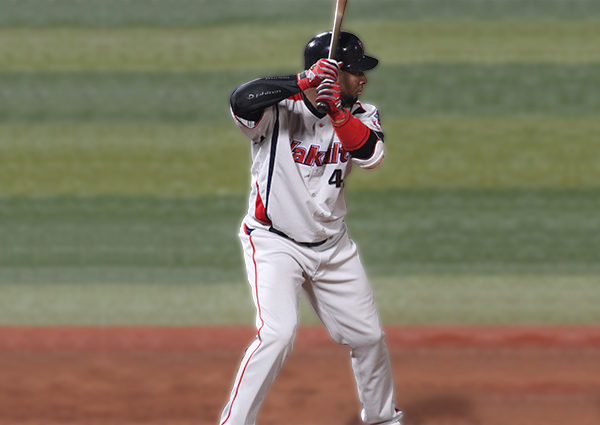At the beginning of each season for the past 49 years, the thought of breaking the Nippon Professional Baseball single-season record of 55 home runs hardly crossed anyone’s mind.
By Sami Kawahara
And when the chance to break the record did come up, it seemed to “mysteriously” disappear. But when Wladimir Balentien hit his 49th and 50th home runs in a single game, with 33 games left in the season, any doubt that the record was unattainable turned into excitement that history was about to be made.
Balentien started out as an undrafted free agent on the Seattle Mariners at the age of 16. He played his first few seasons in the minor leagues before he was called up in 2007, and played three seasons in the major leagues. Life in Japan began in November 2010 when he signed with the Yakult Swallows.
Moving from his hometown of Willemsted, Curaçao, to the US as a teenager, and then to Japan at 26 was hardly a smooth transition. “It was tough,” Balentien says, “The language; I didn’t know if I could survive. I came here by myself, with no family,” he continues. “But I have a dream, so that kept me going and allowed me to adjust to the Japanese lifestyle—food-wise, how to treat the people, how to communicate.”
With time, Japan grew on Balentien. Fans especially helped him adapt to and enjoy the game. “I like the fans here in Japan. They support you anytime and in any situation. They are with you not just when you are doing well, they are with you when you are struggling. If your team is losing 10–0 in the 9th inning, they don’t leave the stadium, they stay there. They keep cheering for you, they keep singing your song until the last out,” he explains.
Breaking the Unbreakable Record
In fact, Balentien attributes part of his record-breaking success to the fans’ dedication and their Coco Meter. “I think the fans pushed for it too, they were so excited and wanted someone to break the record. Even they weren’t happy when I was walked sometimes,” he observes.
Controversy has surrounded the record in the past, as three different foreigners—Randy Bass, Alex Cabrera, and Tuffy Rhodes—all neared the record, and all, it has been said, were intentionally walked in the last few games to preserve the record set by Japanese star, Sadaharu Oh.
Eleven years after Alex Cabrera tied Oh’s record in 2002, it was Balentien’s turn—and this time it was different. “Two weeks before I broke the record, it was amazing,” he describes. “I was nervous every time I went up there. You got the whole stadium cheering for you. It doesn’t matter what the score is: they just want to see a homer. Even the fans from the other team cheered.” Balentien points to his arm, “Ah my hair stands up. It’s something people dream about.”
On September 15, Jingu Stadium erupted in cheers and chants as fans watched Balentien hit a three-run homer into left field, marking his 56th—and record-breaking—home run.
Home run #57 followed in the same game, and Balentien completed the season and set the record at 60 home runs in a single season.
The New Ball
But the record was not met without controversy. Critics have credited the broken record to a “livelier, hitter-friendly” ball. “I know a lot of people say I hit 60 home runs because the ball was juiced or they changed the ball. But I think the new ball doesn’t make a lot of difference for power hitters. If you go around the league, and you look at the power hitters, they all have the same amount of home runs they usually hit.”
“I like the fans here in Japan. They support you anytime and in any situation. They are with you not just when you are doing well, they are with you when you are struggling.”
A comparison between the performance of the top three hitters this season and last suggests a low impact of the new ball: While Abe Shinnosuke hit 32 runs, up from 27 last year, Takeya Nakamura hit 14 this season, significantly less than his 27 runs last year. And Dae-Ho Lee hit 24 HR in both seasons.
Balentien himself hit 31 home runs last season, when he played only 106 games, 38 games fewer than he played this season: further suggestion that nothing should be taken away from his record-breaking performance.
With the regular season over, Balentien heads back to his home in Miami. He will be training in the off-season before heading back to camp on February 1. He doesn’t say that he wouldn’t ever return to Big Leagues some day, but Balentien is grateful to the country where he now reigns as home run king: “I love Japan . . . They gave me an opportunity, a new opportunity in my baseball career.”









